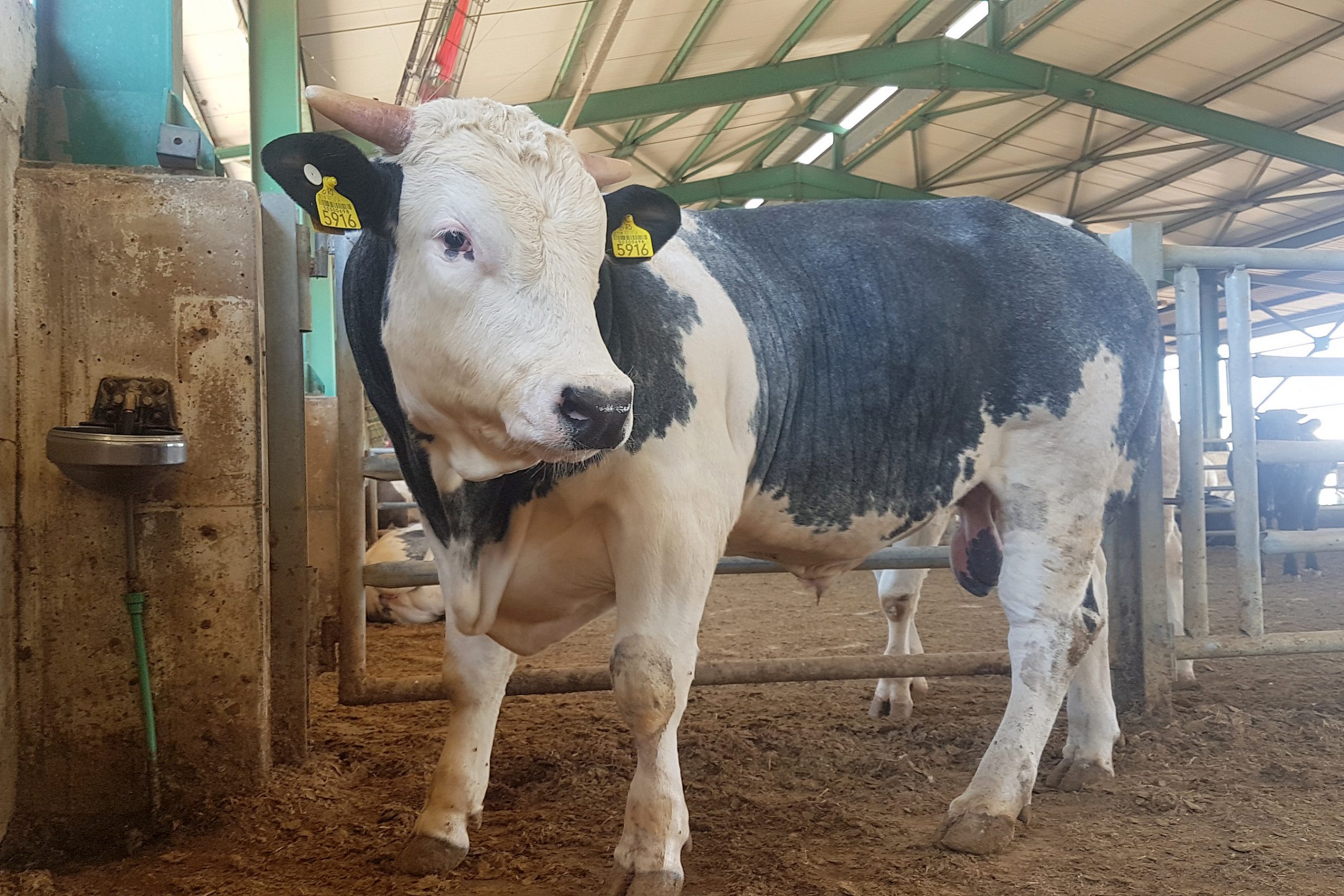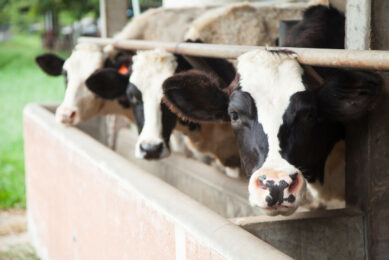Farm report Greece: Beef fattener favours the Romanian Blue

The recent financial crisis in Greece has hurt food prices, consumers prefer to purchase cheap meat, which has become one of the major challenges for Greek farmers. Despite this, Vootrofiki Ritsona beef unit is progressing well.
Beef is a highly desirable source of protein in Greece which pushes demand high. A number of large beef fattening units around the country supply the meat to both private customers and wholesalers. However, according to Greek beef farmers the recent financial crisis has hurt food prices, consumers prefer to purchase cheaper meat, potentially from imports, rather than local quality beef. While that struggle continues to be one of the major challenges currently facing Greek farmers, one large beef unit is progressing well. Vootrofiki Ritsona farm is currently run by a young farmer Ms Ioanna Kylertzi. She took the farm over from from her father Apostolis, who along with his 2 brothers had set the farm up. Sited just 70kms from Athens the farm fattens around 1,000 calves per year as well as 14,000 lambs in the same period. Kylertzi said: “I have a bachelor’s degree from the Agricultural University of Athens as an animal specialist. Vootrofiki Ritsona is our family business and is located in Ritsona, a mountainous territory 20km from Chalkida, and 70km from Athens, the capital of Greece.”
|
We prefer male Belgian Blue calves as the daily live weight gain is more than 1.6kg per head and the yield from the carcase is normally over 60%”. – Ioanna Kylertzi, Vootrofiki Ritsona farm
Belgian Blue calves from Romania
Kylertzi imports all her beef cattle from Romania and prefers to buy male Belgian Blue animals as they grow faster on the farm rations. Plus, with a goal of finishing the animals in just 300 days the beef carcase weighs in at 350kg, which is perfect for her customers. Kylertzi said: “Our business focuses on finishing beef cattle and lambs. We are fattening around 1,000 calves and 14,000 lambs per year. “We import 2 month old Belgian Blue calves from Romania which weigh an average of 100km while on a milk based diet.
“After 2 months from their arrival on our farm their diet changes to a mixed ration of crops and straw. The system that we use is intensive, so the animals are kept indoors and are fed in lots of 10,” she said. Temperatures in Greece vary from zero to 15°C during the winter to spring period and 22 to 40°C during the summer time. Kylertzi added: “Due to the high temperatures during the summer months we use a ventilation system to avoid heat stress among the cattle and any side effects.”
Locally produced feed
Looking more closely at the diet ingredients, Kylertzi uses locally produced grains and crops, which are mixed into a ration on the farm. The family is currently discussing the purchase of a Keenan diet feeder to add efficiency and reduce losses in their mixing routines. “The animal feed diet consists of a mixture of concentrated crops such as corn, barley, soya and coarse feed, which is mostly wheat straw and corn silage, all feed ad-lib. All of these ingredients for the animals’ feed is grown, harvested and collected from cultivations near our territory. Food consumption varies and is dependent on their live weight. We prefer male Belgian Blue calves as the daily live weight gain is more than 1.6kg per head and the yield from the carcase is normally over 60%. On this farm the fattening period is around 10 months and within 300 days the animals’ live weight is more than 550kg. This is the ideal weight for us and is the weight that we remove them from the farm. The carcasses kill out at around 350kg and are sold wholesale or retail in our outlets,” she said.
Challenge of cheaper imports
According to the most recent data in July 2019 from Minagric, the Greek Ministry of Agriculture, beef prices at the farm gate vary from € 4 – € 4.10 per kilogramme deadweight. For young bulls prices can vary up to € 4.69 per kilogramme, and can go higher for organic beef meat and for beef meat from indigenous animal breeds. However, there are a few challenges for Kylertzi regarding cheaper meat imports and the lack of EU funds to help her business expand. Kylertzi: “The number of beef farms in Greece is reducing as the price of imported beef is more competitive. There are no EU funds for businesses that registered after 1990 like ours. The amount of EU community funds is pivotal for our case. Due to the fiscal crisis that Greece has been struggling with the past decade consumers prioritise their budget over quality and this is the biggest challenge for our business. “We are doing our best to keep up with new technology but due to the aforementioned reasons we have to be very selective on the matter.”



 Profile
Profile










